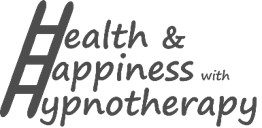FAQs
What is hypnosis?
Hypnosis produces a natural state of selective, focused attention resulting in reduced peripheral awareness, a heightened state of awareness and increased suggestibility, and is often called a hypnotic trance. This day-dreaming or auto-pilot state is one we all go in to naturally on a daily basis.
How does hypnosis work?
Hypnosis is thought to be an altered state of consciousness, such that the analytical left-hand side of the brain is turned off, while the non-analytical right-hand side is made more alert. The control of the conscious critical mind is inhibited, and the unconscious mind becomes more aware, with an enhanced capacity for response to suggestion.
What is hypnotherapy?
Hypnotherapy is a complementary therapy that uses the power of suggestion to bring about changes to behaviours, thoughts and feelings using the pleasant hypnotic trance state and increased suggestibility. The hypnotherapist induces the hypnotic trance state by using his or her voice to guide you into this focused state. People often report feeling very relaxed although this is a benefit and not a prerequisite of effective hypnotherapy.
Who can be helped with Hypnotherapy?
You, your family, your friends, your colleagues. In fact, anyone can be helped with hypnotherapy. As long as you are not suffering from any kind of psychosis or personality disorder, hypnotherapy is a safe and effective treatment.
How many sessions of Hypnotherapy will I need?
Every condition, and every client is individual and therefore the duration of your therapy will depend on a number of factors, including your reasons for undertaking it, and how committed you are to change. It is therefore not possible to accurately advise the number of sessions required for you, although the number of likely sessions will be advised in your initial consultation, and regularly assessed over the course of your therapy. As a general guide, most clients I work with have around 4 to 6 treatment sessions.
If you are looking for a one off service, such as to stop smoking, then this can often be undertaken in one extended session of around 2 hours (or two 1 hour sessions, if this suit you better, although this is not recommended for the best results). Other conditions may require a longer term approach, with regular sessions over a period of weeks, or months. Each session builds on the last, to help you to change thoughts, feelings and behaviours.
Does Hypnotherapy work for everyone?
The majority of people can achieve results from utilising hypnosis in a therapeutic way; which is known as hypnotherapy. Part of the success of hypnotherapy depends on your commitment to it, and the collaborative relationship you have with your therapist, with research suggesting that this is a strong indicator of its success.
What is ACT?
ACT is Acceptance and Commitment Therapy. I am a trained ACT Therapist and deliver it with or without the addition of hypnosis to suit you and your goals, and preferences.
What is EMDR?
EMDR is Eye Movement Desensitisation and Reprocessing. I am a trained EMDR Practitioner and deliver it as a supplement to hypnotherapy or psychotherapy sessions to suit you and your goals, and preferences.
What is CBT?
CBT is Cognitive Behavioural Therapy. I am trained in CBT and deliver it with or without the addition of hypnosis to suit you and your goals, and preferences.
What are Express-Hypnosis sessions?
Express-Hypnosis sessions are 20, 30 or 40 minutes in length and are perfect for when you would simply like to boost your mood, confidence, or energy level, or just simply gain an increased feeling of well-being.
In as little as 20 minutes you could be feeling more relaxed and calm, more able to deal with a stressful situation, more confident, more focused or more energised.
Express-Hypnosis sessions are not designed to deal with conditions that require a detailed case history to be taken, or where therapy is required to be delivered over the course of sessions.
What does an Express-Hypnosis sessions involve?
Five minutes of the time will be spent listening to what you would like to gain from the session (for example, the negative state you would like to leave, and the positive state you would like to experience, or how you would like to think, feel or behave) and the rest of the session allows for hypnosis to be delivered to effect change.
Why are they called ‘Express-Hypnosis’ sessions instead of Hypnotherapy sessions?
Hypnosis works by altering our state of consciousness in such a way that the analytical left-hand side of the brain is turned off, while the non-analytical right-hand side is made more alert. The control of the conscious critical mind is inhibited, and the unconscious mind becomes more aware, with an enhanced capacity for response to suggestion.
Hypnotherapy involves a therapeutic element. Each of my hypnotherapy sessions build on the last and is aimed at treating medical or psychological conditions through the delivery of therapy during hypnosis. Express-Hypnosis sessions do not have a therapeutic element and do not require an initial consultation session. Anyone* can enjoy this enjoyable state of relaxation and leave feeling healthier and happier.
* You will be asked to complete a short Client Record Form at, or prior to your first session (this form can be emailed to you). This form will ask for confirmation that you are not suffering from any condition that could be contra-indicative to hypnosis, such as psychosis or personality disorder.
